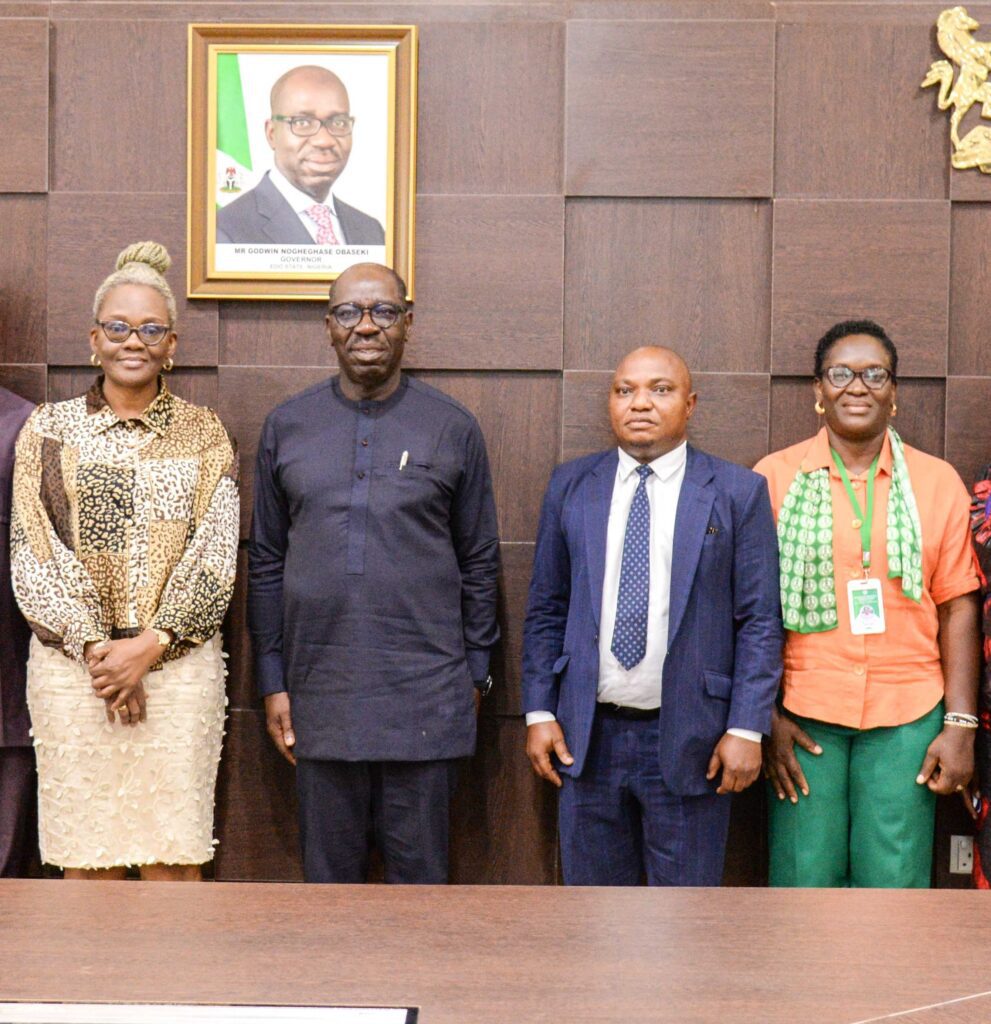…insists on regulation of health system, inaugurates MDCN monitoring c’ttee
The Edo State Governor, Mr. Godwin Obaseki, has said only 10 percent of the over 7,000 private health facilities in the state are registered with the Edo State Ministry of Health, restating the need to step up regulation to ensure quality, efficient and effective healthcare delivery to Edo people.
Obaseki said this during the inauguration of the five-man monitoring committee of the Medical Dental Council of Nigeria (MDCN), at the Government House, in Benin City.
The governor, who restated that his government is undertaking a holistic reform of the health system, said the committee will play a vital role in rethinking the role of the government in healthcare provision in the state.
He said, “This committee will be pivotal in the implementation of some aspects of our health transformational agenda. The medical practice we inherited from the colonial masters was the one which combined both the functions of regulations and operations at that time.

“Government in the past had the responsibility of regulation and providing medical services at the same time, but that has changed over the years. Now the government is no longer the prime provider of medical services. There are more services provided in the medical space by private individuals than government.
“As a state, we feel that the government should now emphasize and focus more on regulatory functions and less as an operator.”
The governor added, “For us in Edo State, our responsibility as a government is to provide and ensure our citizens get the best healthcare services possible. Government should now regulate those who provide that care and ensure our citizens get the best of care and care providers are compelled to perform and do what they need to do to provide quality and standard care that we desire in Edo State.”
He decried, “Current data shows that we have over 7,000 private health facilities in Edo State which include hospitals, medical centers, nursing homes, laboratories, pharmacies, patent medicines stores, amongst others. Sadly, only about 730 are currently registered with the Edo State Ministry of Health which stands for about 10 percent.”
He continued: “As government, we cannot say we know the kind of care our citizens received in the State from health practitioners. We have already kick-started a series of activities that will enhance the regulatory capacity of the Ministry of Health.
“We would support residents in the state to provide us with feedback of their experience of healthcare services as malpractice and unethical conduct of health providers will be duly addressed while ethical centers will be rewarded.
“We would no longer accept the situation where people die in our hospitals and no proper investigation to know the cause of their deaths. We will not allow the operation of unregistered mortuaries in the state.”
Obaseki said the terms of reference for the committee include to ensure that any person performing clinical activities in Edo State is duly registered and licensed by MDCN; report cases of all unethical practices and conduct to MDCN and report quackery to law enforcement agencies in the State, among others.”
On his part, the Chairman of the Committee and a Director of Medical Services, Edo State Ministry of Health, Dr. Edward Aisowieren, hailing the governor’s commitment to improving Edo health system said, “We promise to stand by the terms of reference of the Committee and bring sanity into the healthcare system.”


